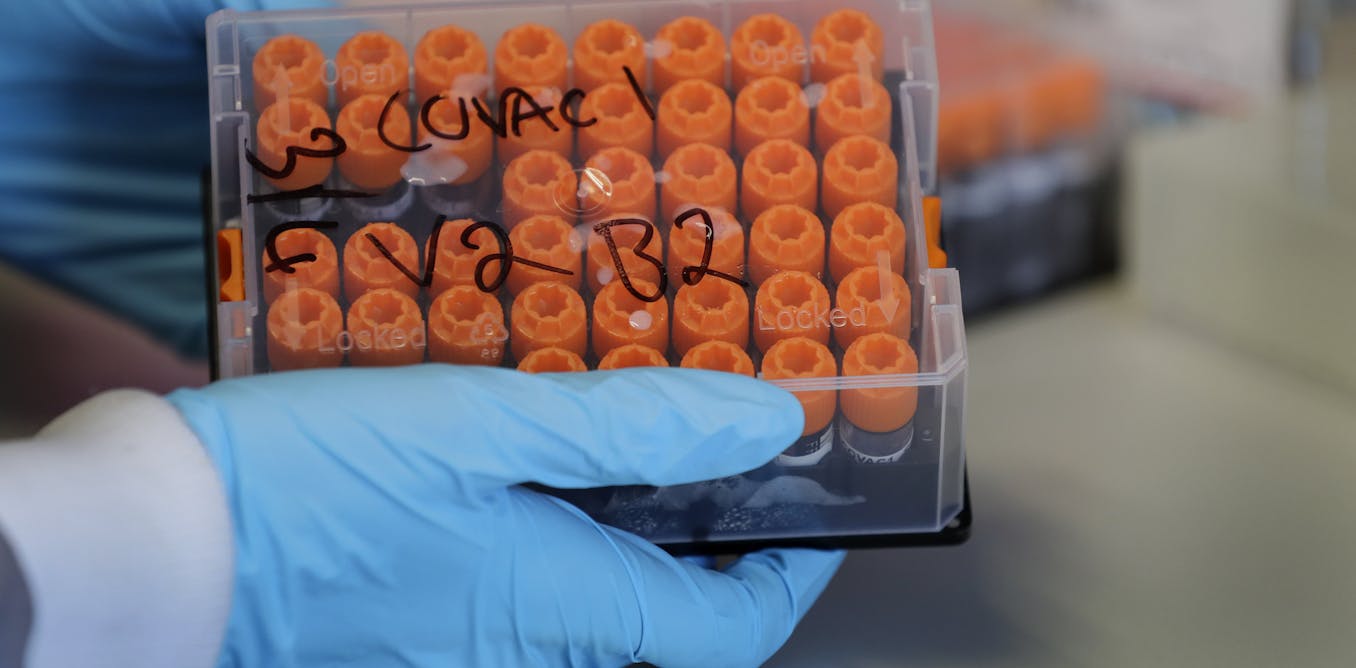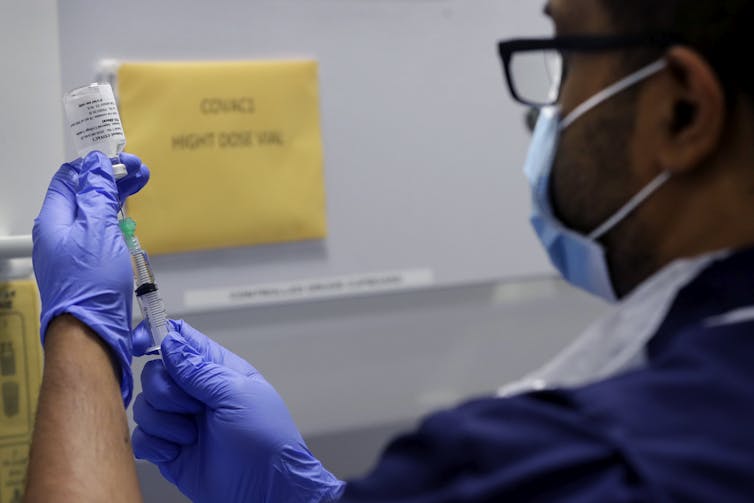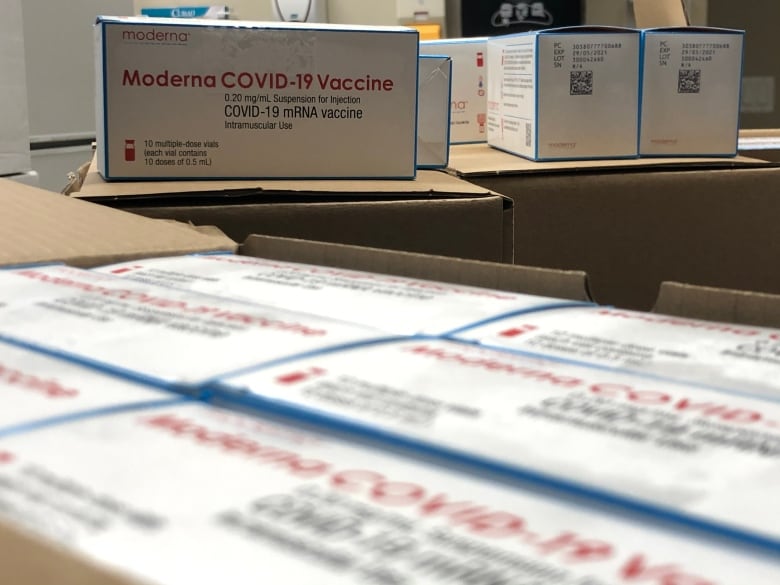Canada's Failure in Accountability, Deliverability of COVID Vaccines
"Canada was pretty slow to make the initial decisions for domestic vaccine development in manufacturing, despite having internationally recognized expertise in vaccine development.""[Canada] took a careful, risk-averse and committee-based decision approach that led to a relatively modest amount of scattered funding for companies in Canada to develop domestic vaccine.""This put the financial risk of vaccine development -- and our country's national security-- on them, which I think was a mistake.""This really put the major part of the burden of development on the companies themselves. I think if we'd received up-front funding at the beginning -- we'd be well into phase three and [moving] toward licensure by now.""...I think it's extremely clear that if you look at the success around the globe, decisive and upfront funding of multiple vaccine candidates all the way through to the end was key to both their success and their speed."John Lewis,CEO. Entos Pharmaceuticals
"[The task force -- COVID-19 Immunity Task Force -- was focused on identifying safe and effective vaccines and to secure a reliable supply for the country.] In doing
so, we were also tasked to look at both domestic and international candidates, and to look at the state of biomedical bio-manufacturing capacity in the country.""As you will recall, there was no vaccine last summer, nor was it clear whether there would ever be a vaccine. I want to stress that most vaccine journeys actually end in failure. So we were really trying to cover our bases with vaccines that we recommended to government.""The other domestic candidates; some showed promise, but for a variety of reasons the vaccine task force felt that they were at too early a stage for significant investment at the time we looked at them."Alan Bernstein, member, federal vaccine task force, president, Canadian Institute for Advanced Research

These two testimonies before a parliamentary committee looking into the sad and sorry state of Canada's vaccine procurement heard from both a pharmaceutical manufacturing head, and a member of the task force that was set up by the Liberal government to lead Canada toward vaccine self-sufficiency. Their perspectives are clearly at odds with one another. The message by John Lewis was confidence in the ability of Canadian science, biolaboratories and pharmaceutical companies to produce an efficient and safe vaccine for protection from COVID for Canadians, contrasting with the explanatory hedging of Mr. Bernstein.
The cost to produce a successful vaccine according to Mr.Lewis is around $350 to $600 million; from discovery to finalization of phase three trials. His company had been given a mere $5 million by the National Research Council to pursue those avenues to conclusion. Either an expression of non-confidence in Canadian biopharmaceutical capabilities or the belief that those pharmaceutical companies could pull miracles out of thin air.
The success of countries like the United Kingdom and the United States, India and Russia, which invested in their own scientists' capabilities with the confidence that laboratories of their own were up to the job of producing a vaccine and making arrangements with pharmaceutical companies to produce large outputs of vaccine more than validates their trust. Gary Kobinger, director of the Infectious Disease Research Centre at Laval University, agreed that the federal government acted slowly, failing to support domestic vaccine development.
 |
Dr.Kobinger has had more than ample experience, having been involved in Canadian teams developing vaccines for Ebola and Zika. He described for the committee his non-profit's struggle to obtain federal funding for its own potential COVID-19 vaccine. A piddling $1-million came his way for a preclinical study. "If you look at what's happened in the United States and Great Britain, really huge amounts of investment there. But here, a million dollars, that's not going to get you very far."
Where the federal government did make its investment was an agreement with CanSino, a Chinese pharmaceutical company linked to the People's Republic of China's military laboratories. Where Canada's National Research Council ostensibly working in tandem with CanSino Biologics handed over the biological platform at no cost to CanSino, upon which it could build its vaccine. The agreement was that the completed vaccine samples would be sent to Canada for phase three trials and subsequent manufacture.
That's where Canada put all its financial eggs, until Beijing decided that CanSino's vaccine could be sent anywhere else in the world but not to Canada. So much for that ill-fated and illogical investment on the part of Canada's government. Which, finding itself with no vaccine after all, hurriedly began pre-ordering vaccines in an order of magnitude far surpassing Canada's population needs, but the orders placed at such a late date, also placing Canada at the 'end of the line'. Leaving the nation waiting for vaccines produced elsewhere and prioritized elsewhere.
 |
| The Moderna COVID-19 vaccine is shown in Calgary last month. Canada's vaccination effort is facing another hurdle after Moderna said it would delay some shipments of its product next month. (Alberta Health Services) |
The two vaccines that were approved by Health Canada, Pfizer-BioNTech and Moderna, have had production delays, leaving Canada awaiting a minimum number of vaccines to inoculate its most vulnerable populations, while other countries which made sensible and time-sensitive decisions on vaccine acquisition, moved ahead on vaccinating their public, while Canadians wait in frustrated abeyance. Health Canada has still not approved AstraZeneca although it is being used successfully in Britain where a quarter of its population has now been inoculated. All indications are that AstraZeneca is prepared to begin delivering its vaccines immediately.
"[No firm timeline is yet to be announced until approval in Canada for AstraZeneca/Oxford vaccine; questions are still being put to the company...] That dialogue with the company, in terms of the finalization of the review, is ongoing.""It's complicated. We know that we've got different regulations that are looking at the same data for AstraZeneca and are making different decisions based on the science.""That's why this is taking a little bit longer than the ones that we have done before."Dr.Supriya Sharma, Chief Medical Adviser, Health Canada“We blew it.""When you take the scientific backwardness, combined with the secrecy that didn’t allow outsiders to detect our missteps in 2020, you end up with the disaster we have in 2021."Dr.Amir Attaran, immunology health law professor, University of Ottawa
 |
| The Government of Canada launched the COVID-19 Immunity Task Force (CITF) in late April 2020 to track the spread of the virus in both the general population and priority populations in Canada. |
Labels: COVID-19 Immunity Task Force, Domestic Pharmaceuticals Overlooked, Inoculations, Liberal Government Failure, Vaccine Availability, Vulnerable Populations
0 Comments:
Post a Comment
<< Home